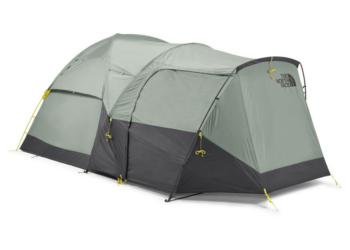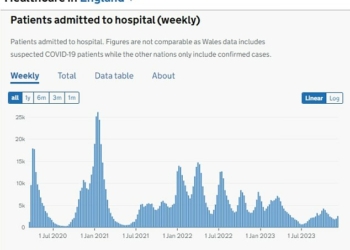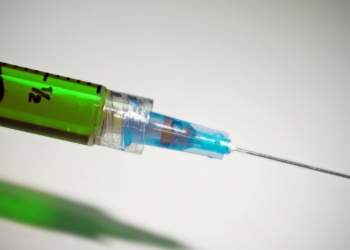Breastfeeding mothers with COVID-19 do NOT pass the virus to their babies – but infants do get ‘milk-borne’ antibodies that can neutralize the virus, study finds
- Researchers looked at 37 samples of breast milk submitted by 18 women who had been diagnosed with COVID-19
- None of the samples contained genetic material of the virus or antigens, which are proteins found on the surface of the virus
- However, nearly two-thirds of the samples contained two antibodies specific to the coronavirus
- The team says the findings show why COVID-19 positive women should not be separated from their newborns
Breastfeeding mothers with COVID-19 do NOT pass the disease to their babies, a new study suggests.
Researchers analyzed dozens of breast milk samples and found none to contain any bits of viral genetic material.
However, they found infants do receive ‘milk-borne’ antibodies that can neutralize the coronavirus.
The team, from the University of Rochester Medical Center in New York, says the findings provide evidence for why COVID-19 positive women should not be separated from their newborns.

Researchers from the University of Rochester Medical Center in New York looked at 37 samples of breast milk submitted by 18 women who had been diagnosed with COVID-19 (file image)

None of the samples contained genetic material of the virus or antigens, which are proteins found on the surface of the virus, but nearly two-thirds of the samples contained two antibodies specific to the coronavirus (above)
While scientists have long believed that ‘breast is best’ when it comes to feeding newborns, there were many questions surrounding the benefits and potential risks are still unanswered.
Limited research has been conducted on this topic up to this point, but the results have been mixed.
Some studies have found no virus in human milk while others have detected viral RNA in just certain milk samples.
Additionally, researchers wanted to know if antibodies can be found in breast milk and, if so, can protect babies from developing COVID-19.
‘We only want to sequester a mother from her baby if it’s medically necessary,’ said co-investigator Dr Bridget Young, assistant professor in the pediatrics department at URMC, in a press release.
‘However, the issue was very confusing for practitioners who don’t have sufficient evidence.
‘These early results suggest that breast milk from mothers who have had a COVID-19 infection contains specific and active antibodies against the virus, and that they do not transfer the virus through milk. This is great news!’
For the study, published in published in mBio, the team looked at 37 samples of breast milk submitted by 18 women who had been diagnosed with COVID-19.
None of the samples they looked at contain genetic material of the virus or antigens, which are proteins found on the surface of the virus.
However, they found that nearly two-thirds of the samples contained two antibodies specific to the coronavirus.


‘We found high levels of IgA – a common antibody in blood and other body fluids – in their breast milk,’ said Dr Mark Sangster, a professor in the fepartment of microbiology and immunology at URMC.
For their next phase of research, the team is scaling up the study and is enrolling 50 breastfeeding women were diagnosed with COVID-19.
Researchers plan to follow their progress with the disease over two months,
‘This work needs to be replicated in larger cohorts. Additionally, we now need to understand if the COVID-19 vaccine impacts breast milk in the same way,’ Young said.
Advertisement













